Politics
China’s Xi unveils Global Governance Initiative at SCO Tianjin Summit
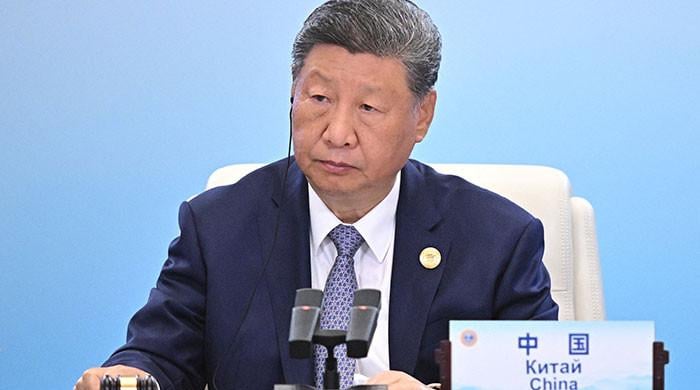
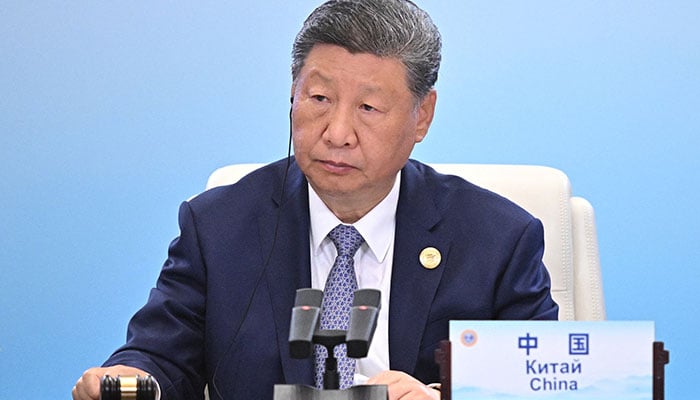
TIANJIN: Chinese President Xi Jinping on Monday unveiled the Global Governance Initiative (GGI) at the Shanghai Cooperation Organisation Plus summit in Tianjin, calling for a more just and equitable global governance system.
“I look forward to working with all countries for a more just and equitable global governance system and advancing toward a community with a shared future for humanity,” Xi said while addressing the meeting.
The SCO, comprising China, India, Russia, Pakistan, Iran, Kazakhstan, Kyrgyzstan, Tajikistan, Uzbekistan and Belarus, is touted as a non-Western style of collaboration and seeks to be an alternative to traditional alliances.
Outlining the framework, the Chinese president said the initiative rests on five principles: adhering to sovereign equality, abiding by international rule of law, practising multilateralism, adopting a people-centered approach, and focusing on real actions.
“We must continue to take a clear stand against hegemonism and power politics, and practice true multilateralism,” he said, in a veiled attack on the current US-dominated world order.
Xi, alongside Russian President Vladimir Putin, pressed for a global security and economic order prioritising the “Global South.”
Xi called for the creation of a new SCO development bank, in what would be a major step towards the bloc’s long-held aspiration of developing an alternative payment system or common currency that circumvents the US dollar.
Beijing will provide 2 billion yuan ($280 million) of free aid to member states this year and a further 10 billion yuan of loans to an SCO banking consortium, the Chinese leader said.
China will also build an artificial intelligence cooperation centre for SCO nations, which are also invited to participate in China’s lunar research station, Xi added.
Earlier, Xi pushed for more inclusive economic globalisation amid the upheaval caused by US President Donald Trump’s tariff policies, touting the SCO’s “mega-scale market” and vast economic opportunities in fields including energy and science.
The SCO summit, which also involves 16 more countries as observers or “dialogue partners”, kicked off on Sunday, days before a massive military parade in the capital Beijing to mark 80 years since the end of World War II.
The member states signed a declaration Monday, agreeing to strengthen cooperation in sectors such as security and economy, China’s Xinhua news agency said. They also “unanimously agreed” to admit Laos as a “dialogue partner”, Xinhua added.
Xi held a flurry of back-to-back bilateral meetings with leaders including Lukashenko — one of Putin´s staunch allies — and Modi, who is on his first visit to China since 2018.
— With additional input from Reuters and AFP
Politics
Key Iranian figures martyred in US-Israel military strikes
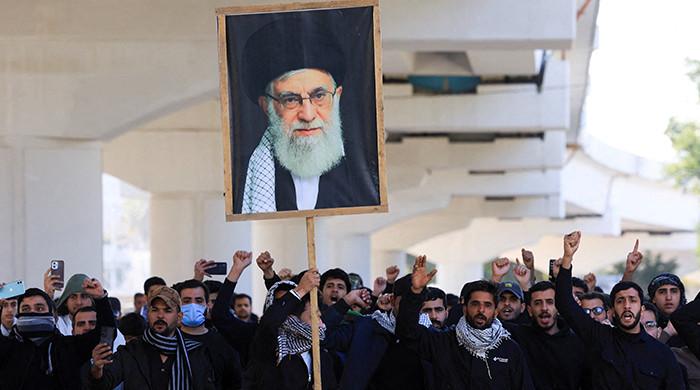
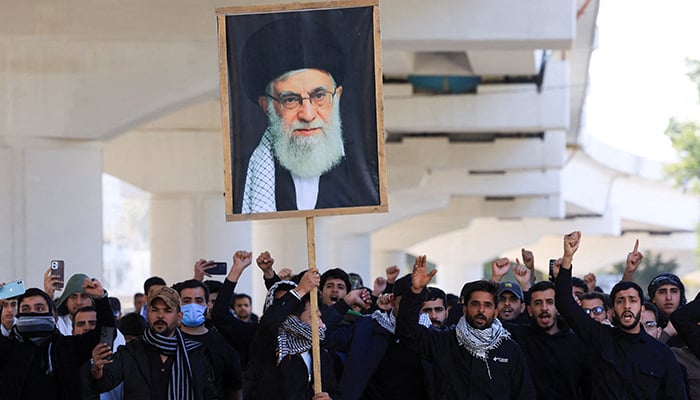
A number of Iranian senior leaders, including Supreme Leader Ayatollah Ali Khamenei, have embraced martyrdom in the “unprovoked and unwarranted” airstrikes by Israel and the United States.
As crowds gathered in Tehran, explosions rang out, and the Israeli military announced that it was again striking targets in the heart of the city — as more blasts were heard in Jerusalem, Riyadh, Dubai, Doha and Manama.
Iran’s President Masoud Pezeshkian declared Khamenei’s assassination a “declaration of war against Muslims” and warned: “Iran considers it its legitimate duty and right to avenge the perpetrators and masterminds of this historic crime.”
Iranian state media have confirmed the killing of several senior figures:
1. Ayatollah Ali Khamenei, supreme leader of Iran
2. Ali Shamkhani, representative of the Supreme Leader in the Supreme Defence Council
3. General Abdolrahim Mousavi, Iran’s Armed Forces chief of staff
4. Major General Mohammad Pakpour, commander-in-chief of the Islamic Revolution Guards Corps (IRGC)
5. Aziz Nasirzadeh, Minister of Defence
6. Gholamreza Rezaian, police intelligence chief of Iran
Separately, the daughter, son-in-law, and granddaughter of Ali Khamenei also embraced martyrdom in the US and Israeli airstrikes.
Politics
Iran to continue acting in self-defense until enemy’s aggression ends: UN envoy
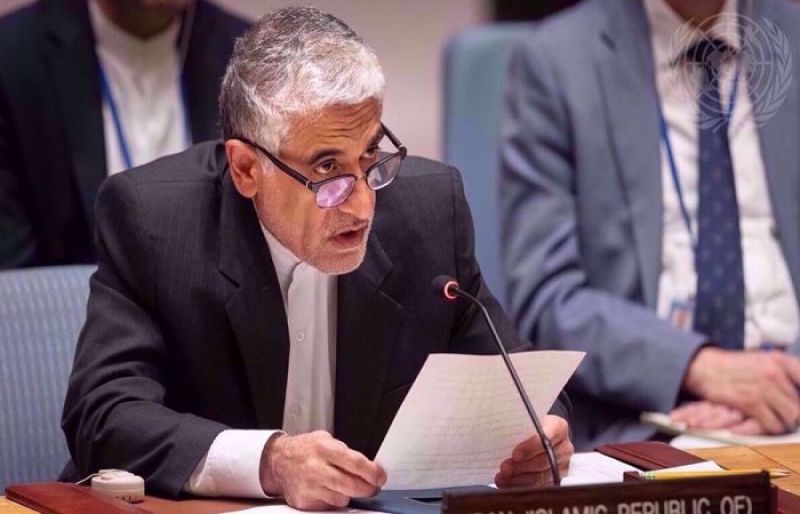

Iran’s permanent ambassador to the United Nations has vehemently denounced the fresh and unprovoked Israeli-American war on the Islamic Republic, asserting that the country will continue to act in self-defense until the end of the unlawful aggression.
Amir-Saeid Iravani made the remarks at a UN Security Council meeting on Sunday regarding the joint strikes that were launched against the country earlier on Saturday.
The nation, he stated, was facing armed aggression and a war against international law, which could not be justified by any excuse.
Referring to Iran’s decisive and ongoing retaliatory strikes, under the codename Operation True Promise 4, the envoy said it serves as a legitimate act of self-defense.
The Islamic Republic would continue to exercise its legitimate right to self-defense until the aggression ends, Iravani told the world body.
The Islamic Revolution Guards Corps (IRGC) has so far launched at least five waves of counterstrikes against numerous Israeli and American targets in response to the aggression.
IRGC has pledged to sustain the counterstrikes until the enemies’ “complete defeat,” while noting that the reprisal exceeds by far the proportions of its previous round of retaliations against Tel Aviv’s and Washington’s imposed war on the nation last June.
Addressing the same meeting, Russia’s UN envoy said Iran had been once again “stabbed in the back,” referring to the country’s coming under fresh aggression, while engaging in indirect talks with the United States aimed at resolving standing issues.
Vasily Nebenzya condemned an attack on a school in Iran that took place as part of the renewed aggression, claiming the lives of more than 100 people, calling it a sign of “unjustified aggression” by the Israeli regime and the United States against a UN member state.
He described the atrocities as “unjustifiable” and a “betrayal of diplomacy.”
Politics
Blast at India explosives factory kills 17


- PM Modi describes accident as “deeply distressing”.
- Maharashtra CM terms it “extremely unfortunate.”
- Industrial accidents are common in India.
A blast at an explosives factory killed at least 17 people and injured 18 others on Sunday, officials in the western Indian state of Maharashtra said.
Prime Minister Narendra Modi said the accident was “deeply distressing” and wished a speedy recovery to the survivors.
Maharashtra state chief minister Devendra Fadnavis called the incident “extremely unfortunate and tragic” in a post on X.
The accident happened in Nagpur, about 800 kilometres (500 miles) from state capital Mumbai.
“Rescue operations have been accelerated, and so far, 17 people have lost their lives,” Fadnavis said, adding 18 others were injured.
An investigation has been ordered into the incident.
On Saturday, 21 people were killed in an explosion at a firecracker factory in the southeastern Indian state of Andhra Pradesh.
Industrial accidents are common in India, often due to disregard for safety requirements and lax enforcement.
Last year, a firework factory explosion in western India killed 21 people.
-

 Business1 week ago
Business1 week agoUS Top Court Blocks Trump’s Tariff Orders: Does It Mean Zero Duties For Indian Goods?
-

 Fashion1 week ago
Fashion1 week agoICE cotton ticks higher on crude oil rally
-

 Entertainment1 week ago
Entertainment1 week agoThe White Lotus” creator Mike White reflects on his time on “Survivor
-

 Politics1 week ago
Politics1 week agoPakistan carries out precision strikes on seven militant hideouts in Afghanistan
-

 Business1 week ago
Business1 week agoEye-popping rise in one year: Betting on just gold and silver for long-term wealth creation? Think again! – The Times of India
-

 Sports1 week ago
Sports1 week agoBrett Favre blasts NFL for no longer appealing to ‘true’ fans: ‘There’s been a slight shift’
-

 Sports1 week ago
Sports1 week agoKansas’ Darryn Peterson misses most of 2nd half with cramping
-
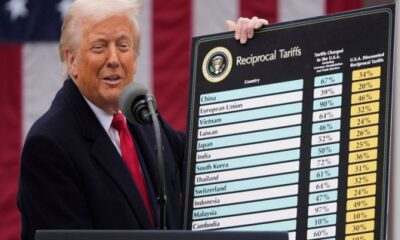
 Politics1 week ago
Politics1 week agoUS Supreme Court strikes down Trump’s trade tariff measures






